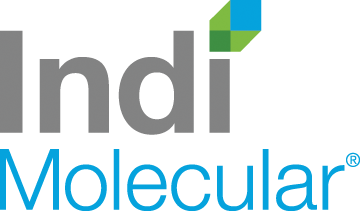Chemical Reviews Publishes Major Review of Protein-Catalyzed Capture Agent Technology
CULVER CITY, CA, March 8, 2019 - Chemical Reviews has published a major review of protein-catalyzed capture agent (PCC) technology. The article, written by researchers from Indi Molecular, Institute for Systems Biology, and U.S. Army Research Laboratory, was published online on March 6. PCCs are synthetic and modular peptide-based affinity agents that are developed through the use of single-generation in situ click chemistry screens against large peptide libraries. In such screens, the target protein, or a synthetic epitope fragment of that protein, provides a template for selectively promoting the noncopper catalyzed azide–alkyne dipolar cycloaddition click reaction between either a library peptide and a known ligand or a library peptide and the synthetic epitope. Various PCCs have demonstrated utility for selective protein detection, as allosteric or direct inhibitors, as modulators of protein folding, and as tools for in vivo imaging. A historical context for PCCs is provided, and they are placed within the broader scope of biological and synthetic aptamers. Advances, current challenges, and future opportunities of PCC technology are also discussed.
“This review article provides the reader with an extensive understanding of the evolution of Indi Molecular’s protein capture technology as an antibody replacement and its multiple potential applications,” said Albert A. Luderer, Ph.D., chief executive and co-founder, Indi Molecular. “Indi Molecular’s most recent work has been focused on molecular imaging and therapy applications that deploy a common detection PCC to deliver the imaging or therapeutic agent directly to the target tissue. The choice of imaging or therapy is elected by simply changing the attached PCC’s payload chemistry.”
####
